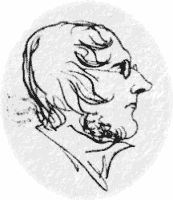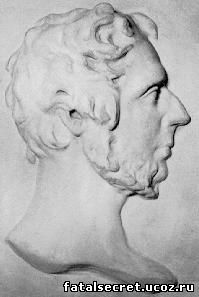Patrick Branwell Brontë


Brother to Charlotte, Emily and Anne Brontë.
Born Thornton, 26th June 1817.
Died Haworth, 24th September 1848.
Childhood
Branwell was the fourth of the six Brontë children and the only boy. After the death of their mother in 1821, their mother's sister, Elizabeth Branwell, moved into the Parsonage to look after the children, and Branwell was close to his Aunt Branwell. In 1825 the two oldest children, Maria and Elizabeth died from tuberculosis. The four surviving children, with only five years separating them, became a close and exclusive band.
Education and Personality
Branwell may have attended Haworth Grammar School for a short period when he was young. If he did, it was the only education he received outside his own home. He received his primary education, along with his sisters, from Aunt Branwell; visiting masters taught drawing and music, and his father tutored him in the classics, and introduced him to very wide reading. Branwell was a willing scholar with a precocious intellect. His translations of Horace's Odes were to receive critical acclaim; he played the organ in his father's church, and he aspired to being a professional portrait painter. Physically small with flaming red hair, Branwell was impulsive and quick-witted, and he had a penchant for showing off in company.
Branwell may have attended Haworth Grammar School for a short period when he was young. If he did, it was the only education he received outside his own home. He received his primary education, along with his sisters, from Aunt Branwell; visiting masters taught drawing and music, and his father tutored him in the classics, and introduced him to very wide reading. Branwell was a willing scholar with a precocious intellect. His translations of Horace's Odes were to receive critical acclaim; he played the organ in his father's church, and he aspired to being a professional portrait painter. Physically small with flaming red hair, Branwell was impulsive and quick-witted, and he had a penchant for showing off in company.
Career
In 1838 Branwell set himself up as a professional portrait painter in a rented studio in Bradford. He made many friends among the artistic community of the Bradford pubs, but he failed to make a living. In 1840 he took a position as tutor to a family at Broughton-In-Furness in Westmorland, but he was sacked within a year. From October 1841 to April 1842 he worked on the Leeds Manchester Railway, first as Clerk at Sowerby Bridge, and then as Clerk-In-Charge at Luddenden, from where, having missed a discrepancy in the accounts, he was sacked. At the beginning of 1843, his sister Anne secured Branwell the position of tutor to the only boy in the Robinson household at Thorp Green near York, where she had been governess to the girls for the past three years.
In 1838 Branwell set himself up as a professional portrait painter in a rented studio in Bradford. He made many friends among the artistic community of the Bradford pubs, but he failed to make a living. In 1840 he took a position as tutor to a family at Broughton-In-Furness in Westmorland, but he was sacked within a year. From October 1841 to April 1842 he worked on the Leeds Manchester Railway, first as Clerk at Sowerby Bridge, and then as Clerk-In-Charge at Luddenden, from where, having missed a discrepancy in the accounts, he was sacked. At the beginning of 1843, his sister Anne secured Branwell the position of tutor to the only boy in the Robinson household at Thorp Green near York, where she had been governess to the girls for the past three years.
Writing Career
From the age of nine onwards into adulthood, Branwell and Charlotte collaborated in the creation of their imaginary world of Angria. Angria had its own topography, its own politics and wars, and its own large cast of exotic characters, and Charlotte and Branwell made little books from their stories. Branwell sent written work, for publication or critical judgement, to those he himself admired, including, Blackwood's Magazine, Wordsworth, De Quincey and Hartley Coleridge, but the only work he ever had published, were a handful of poems in Yorkshire newspapers.
From the age of nine onwards into adulthood, Branwell and Charlotte collaborated in the creation of their imaginary world of Angria. Angria had its own topography, its own politics and wars, and its own large cast of exotic characters, and Charlotte and Branwell made little books from their stories. Branwell sent written work, for publication or critical judgement, to those he himself admired, including, Blackwood's Magazine, Wordsworth, De Quincey and Hartley Coleridge, but the only work he ever had published, were a handful of poems in Yorkshire newspapers.
The Fall
In July 1845, Branwell was sacked from his position at Thorp Green. Although the details are not known, Branwell seems to have misjudged his relationship with his employer's wife. Branwell's own story, that he and Mrs. Robinson were in love, is not corroborated from any other source. At twenty-seven, Branwell was back home in disgrace after his fourth failed career. Over the next three years he sank into a welter of self-pity. He became dependent on alcohol and opium, and was probably unaware, at the end of 1847, of his sisters' success in having their first novels published. During Branwell's last year, his father took him into his own bed to try and control him and alleviate his nightmares. Branwell became ill, probably from tuberculosis, in the summer of 1848 and died on the 24th September.
In July 1845, Branwell was sacked from his position at Thorp Green. Although the details are not known, Branwell seems to have misjudged his relationship with his employer's wife. Branwell's own story, that he and Mrs. Robinson were in love, is not corroborated from any other source. At twenty-seven, Branwell was back home in disgrace after his fourth failed career. Over the next three years he sank into a welter of self-pity. He became dependent on alcohol and opium, and was probably unaware, at the end of 1847, of his sisters' success in having their first novels published. During Branwell's last year, his father took him into his own bed to try and control him and alleviate his nightmares. Branwell became ill, probably from tuberculosis, in the summer of 1848 and died on the 24th September.
Источник:



